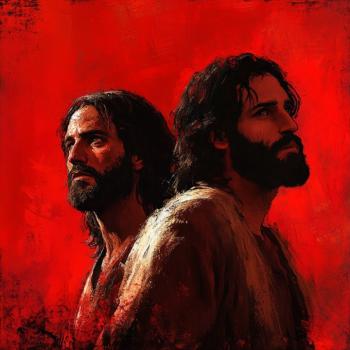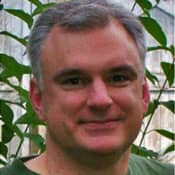Last weekend I drove the two and a half hours from Harrisburg, Pennsylvania to Parsippany, New Jersey for the purpose of conducting an oral history interview with my 100-year-old grandfather.
As a history professor, I regularly teach a course entitled "Immigrant America." In this course, students are required to do a taped interview with an immigrant and write an eight-page paper about how the experience of this particular person illustrates some aspect of the American immigrant experience.
I talk a lot about my grandfather in that course. He came to the United States from the tiny village of San Felice, Italy in 1913. He was 3 years old. My grandfather has witnessed much of "The American Century," a phrase used by historians to describe the rise of American power in the 20th century.
A few years ago while I was teaching this course, one of my students approached me after a lecture on Italian immigration and asked if I had ever interviewed my grandfather. I was embarrassed to tell her that I had not, but said that I would make an effort to do so. My student told me that I better "hurry-up" before my grandfather passed away. In response to her constant urging, I mentioned the possibility of an interview to my grandfather and he seemed more than willing. Finally everything fell into place this past weekend.
My grandfather's mind is still very sharp. He has an amazing memory. And the fact that he loves to be the center of attention certainly contributed to the success of the project. For close to three hours he sat there in his favorite chair and told story after story—sometimes at my prompting, sometimes not—about his century-long American sojourn.
During the course of the interview, my grandfather recounted familiar stories and told me a few that I had never heard before. I learned that his father (my great-grandfather) had come to America about three years before the rest of his family. Thus when my grandfather, his mother, and his siblings arrived at Ellis Island in 1913 it was the first time my grandfather had ever seen his father. I heard about the discrimination he suffered as an Italian-American working for the breweries in Newark, New Jersey; his experience driving through the devastating New England hurricane of 1938; his life during the Great Depression; and where he was when he first learned about the Japanese attack on Pearl Harbor (in a theater with my grandmother).
My grandfather's story is an American story. Although he stopped going to school in eighth grade, he had developed a passion for reading. During the summer months he would slip away from the daily chores at home and read about the inventions of Tom Swift while seated under a big shady tree at the local cemetery. The cemetery was the only place where he found "peace and quiet." Later he would become a fan of the western writer Louis L'Amour. He claims to have read every novel L'Amour ever wrote. The boyhood innovations of Swift and the wide-open spaces of L'Amour's West no doubt appealed to an immigrant trying to find his way in a place that offered endless opportunity.
Like most immigrants, my grandfather wanted his part of the American dream. He found it through land. After World War II he bought four acres in Parsippany (at the price of about $1000 per acre) and started constructing his dream house. Most of the modest 1500-square foot home was built on weekends or after a long day of driving a beer truck. Today Parsippany is a heavily populated New York City suburb. In the 1950s it was mostly farmland. When I asked my grandfather if he ever had second thoughts about moving from the well-settled neighborhoods of West Orange, New Jersey to the wilderness of Parsippany he got a big smile on his face and said "never." He had found his slice of America.
But my grandfather's life was not entirely about self-improvement, individual ambition, and "making it." His pursuit of the American dream was forged amid overlapping communities of friends, neighbors, and family. His first decade as a married man was spent in an apartment located next door to the house in which he grew up and where his parents still lived. Before he built his house in Parsippany he constructed a small cabin on his property, which became the site of weekend parties with friends, family, and even a few "strangers" from West Orange. The bocce alley was always open, the evenings were spent singing and playing instruments together, and my grandmother and her sisters would feed the crowd with twelve pounds of pasta. The pursuit of American individualism could not be separated from the communal traditions of the Old World.
I learned a lot from interviewing my grandfather. I admired the courage he had to forge a life for himself in America. Though he was deeply grounded in the Old World way of life that was taught to him by his Italian parents, he also acted in history—often with great determination—and let God's purpose be done.





